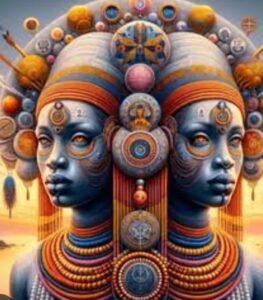History: Know All The Yoruba Communities in the World
History: Know All The Yoruba Communities in the World

The Yoruba people, one of Africa’s largest ethnic groups, have a profound and far-reaching presence that extends beyond Nigeria. With their roots deeply embedded in various regions of West Africa and the Americas, the Yoruba have established vibrant communities that contribute to the cultural mosaic of each area. This article explores the significant Yoruba populations worldwide, highlighting their unique contributions and cultural legacies.
The Yoruba in West Africa
Yoruba communities can be found in several countries across West Africa, each maintaining its distinct cultural practices while sharing a common heritage. Key regions include:
1. Yoruba-Ife: Often regarded as the spiritual home of the Yoruba people, Ife is famous for its rich history and artistry, especially in bronze sculpture.
2. Yoruba-Oyo: Historically a powerful kingdom, Oyo remains a cultural hub for the Yoruba, known for its traditional institutions and festivals.
3. Yoruba-Ohori, Yoruba-Ketu, and Yoruba-Idaacha (Benin Republic): These communities exemplify the cultural spillover across borders, maintaining connections with their Nigerian counterparts.
4. Yoruba-Ekiti, Yoruba-Okun, Yoruba-Akure, and Yoruba-Ondo: Located within Nigeria, these regions contribute significantly to the Yoruba cultural heritage through language, music, and traditions.
5. Yoruba-Ijesa, Yoruba-Akoko, and Yoruba-Owo: Each area showcases unique dialects and customs, enriching the overall Yoruba identity.
6. Yoruba-Igbomina, Yoruba-Ijebu, and Yoruba-Egba: These communities illustrate the diversity within the Yoruba culture, with distinct festivals and historical narratives.
7. Yoruba in Togo and Ghana: Communities such as Yoruba-Ife/Atakpa in Togo and Yoruba-Brimah descendants in Ghana highlight the movement of Yoruba people across borders, preserving their cultural identity.
The Yoruba Diaspora
The influence of the Yoruba people extends globally, particularly in the Americas, where historical migration due to the transatlantic slave trade has led to the establishment of significant Yoruba communities:
1. Yoruba-Brazil, Yoruba-Cuba, and Yoruba-Haiti: These regions have been profoundly influenced by Yoruba religious practices, such as Candomblé in Brazil and Santería in Cuba, which integrate Yoruba deities into local traditions.
2. Yoruba-Trinidad and Yoruba-Guyana: In these Caribbean nations, Yoruba cultural practices persist, contributing to the rich tapestry of local customs and celebrations.
3. Yoruba in Jamaica and St. Lucia: These communities maintain elements of Yoruba heritage through language, dance, and spirituality.
Cultural Significance
Yoruba culture is characterized by a rich oral tradition, vibrant music, dance, and festivals that celebrate their history and spirituality. The Ifa divination system, an essential aspect of Yoruba spirituality, continues to thrive in various forms across the diaspora.
Moreover, the Yoruba language, with its various dialects, serves as a vital connector among communities, fostering a sense of belonging and cultural pride.
Conclusion
The Yoruba people represent a remarkable example of cultural resilience and adaptability. From their roots in West Africa to their established communities worldwide, they continue to enrich global culture with their traditions, beliefs, and practices. Understanding and celebrating the diversity of the Yoruba diaspora allows for a deeper appreciation of their historical significance and cultural contributions, making the Yoruba people
an integral part of the world’s cultural heritage.
TRENDING SONGS
 Wedding Called Off: How Lady Cancels Wedding After Finding Out Finance’s Affairs With Her Bestie
Wedding Called Off: How Lady Cancels Wedding After Finding Out Finance’s Affairs With Her Bestie
 Heartbreak in Ikeja: Lady Weeps After Fufu Found in New Phone Package
Heartbreak in Ikeja: Lady Weeps After Fufu Found in New Phone Package
 Twist of Fate: Man Who Questioned Phyna’s ₦1Billion Demand Mourns Brother in Dangote Truck Crash
Twist of Fate: Man Who Questioned Phyna’s ₦1Billion Demand Mourns Brother in Dangote Truck Crash
 Tragedy in Enugu: Dangote Truck Claims Lives of Family of Five
Tragedy in Enugu: Dangote Truck Claims Lives of Family of Five
 Bangkok Crackdown: Nigerian-Thai Couple in Police Net Over Drug Trafficking
Bangkok Crackdown: Nigerian-Thai Couple in Police Net Over Drug Trafficking
 Family Rift: Reno Omokri’s Ex-Wife Says He Deserted Their Special Needs Son
Family Rift: Reno Omokri’s Ex-Wife Says He Deserted Their Special Needs Son
 The Man Who Sent Money for Two Decades, Only to Return to an Empty Shell
The Man Who Sent Money for Two Decades, Only to Return to an Empty Shell
 See how a young lady was beaten in a village and naked for stealing a goat
See how a young lady was beaten in a village and naked for stealing a goat
 See How Man That Plans to Divorce His Wife, Gets Shocked When She Leaves Him First With Their 5 Kids
See How Man That Plans to Divorce His Wife, Gets Shocked When She Leaves Him First With Their 5 Kids
 Tragic Land Dispute: Man Kills Father in Imo, Pastor Arrested for Rape
Tragic Land Dispute: Man Kills Father in Imo, Pastor Arrested for Rape
Share this post with your friends on ![]()













